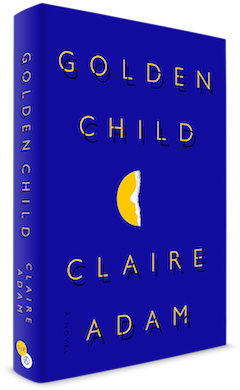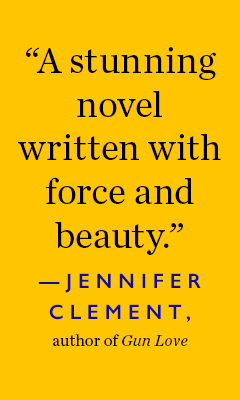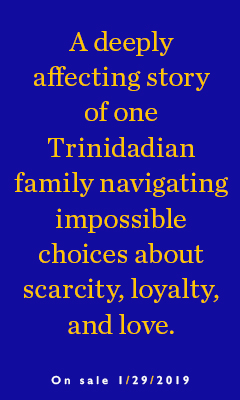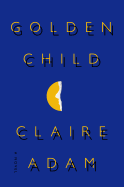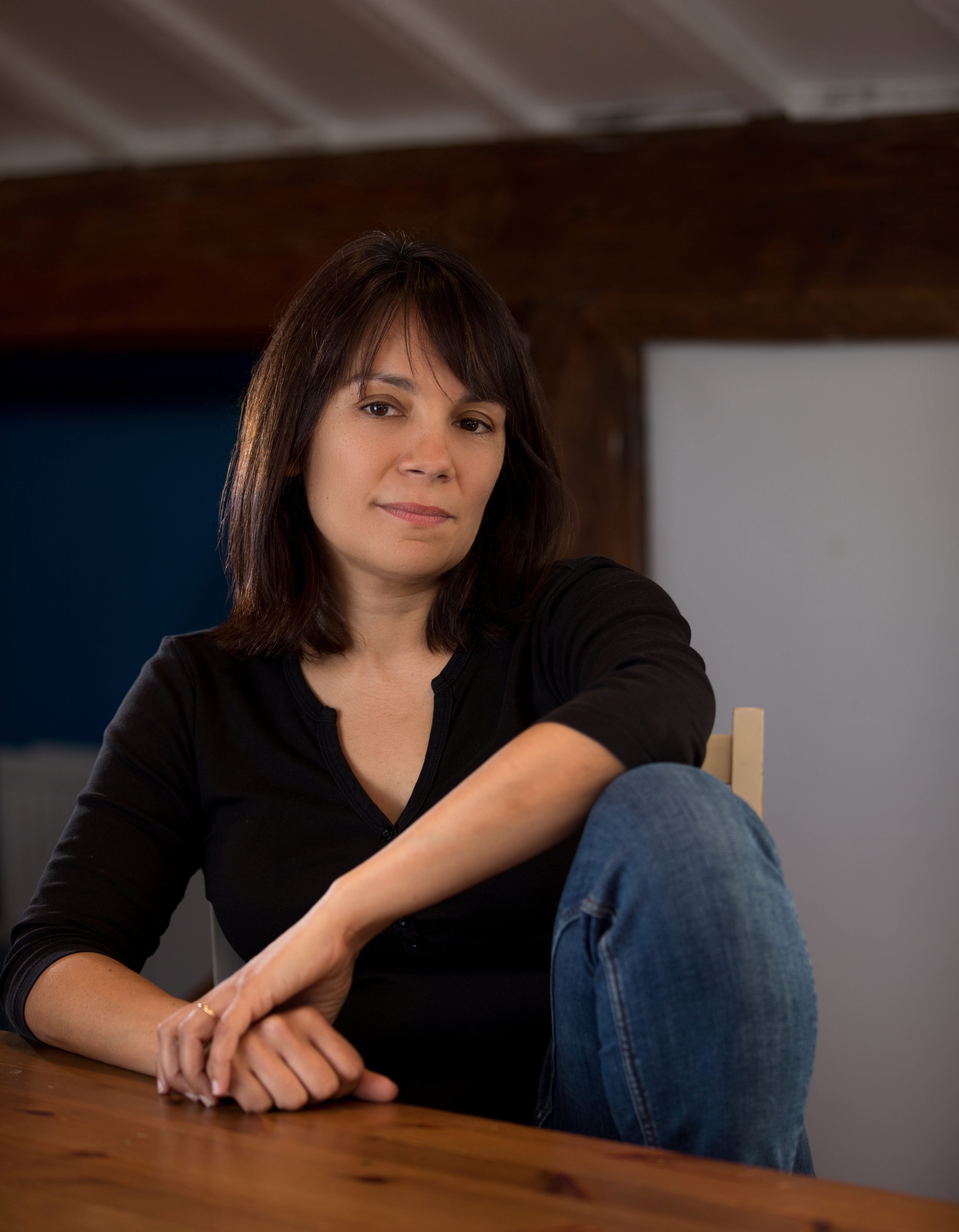Golden Child
by Claire Adam
Claire Adam's intriguing debut novel, Golden Child, is an atmospheric read that poses provocative questions about familial duty, poverty, privilege and masculinity. Pivoting on a single act of violence and imbued with smaller, more mundane acts of cruelty, this is a luminous and heartbreaking tale of the complicated architecture of sacrifice.
"They have two kinds of men in the world, Clyde thinks, two kinds of fathers. One kind works hard and brings all the money home and gives it to his wife to spend on the house and children. The other kind doesn't do that. And nobody can control which kind of father they get."
Set in rural Trinidad--Adam's homeland--during the 1980s, Golden Child tells the story of the Deyalsingh family. The father, Clyde, is a hardworking petrochemical employee who has dogged ideas about the worth and potential of his 13-year-old twin sons, Peter and Paul. Peter appears to be the golden child of the book's title. The near-silent and presumed "slow" Paul, on the other hand, was "deprived of oxygen at birth" and vexes his father to no end. The idea of robbing Peter to pay Paul sits at the center of what unfolds after Paul goes missing one day while out in the bush.
Not long before Paul's disappearance, the Deyalsinghs' house is broken into while the twins and their mother, Joy, are home. Angry that Paul might have provoked the intruders into more aggressive acts, Clyde threatens his son with institutionalization. Later, at nightfall on the day Paul has gone missing, Clyde grows angrier, convinced that this is yet another way in which Paul intentionally undermines him and his plans for the family. While Clyde is mostly an unsympathetic figure, he occasionally stumbles in his convictions and emotional unassailability, struggling to keep worry and regret at bay as he resolutely searches for his missing son in the bush and throughout their neighborhood.
Moving back and forth in time, from events leading up to Paul's disappearance to the immediate and long-term repercussions of his vanishing, Adam's finest talents as a writer arise when the story switches from Clyde's perspective to Paul's. This exposes Clyde as a slightly unreliable narrator (or, arguably, a more complicated one) and moves the story into Paul's nocturnal, reverie-like perceptions. So elegantly written is Paul's interior that it's tempting to think he is the golden child, not Peter. And when Peter's gushing teacher--who has plans for sending him to university--tells Clyde that he doesn't "understand the kind of child [Clyde has on his] hands," he's unintentionally speaking of Paul, too.
Place and landscape mirror the boys' contrasting characters. The studious Peter, who has a steady and unquestionable love for his twin brother, is "like a foreigner in Trinidad" who "walks with a bold step." He is surely destined for greater accomplishments far away from home. His characterization is clean, minimal. Alternatively, Adam goes deep and poetic with Paul, who struggles with his education and "tends to slink around--like he's playing invisible." Seemingly vulnerable, yet with "a little bit of macho-man act, which maybe fends off... teasing," Paul, more tenacious than assumed, is a misunderstood, neglected, yet beautiful extension of Adam's construction of the Trinidadian bush. His nickname is "Tarzan" because of the long hair he vehemently refuses to cut. He is also more at home in the same bush that Clyde is so uncomfortable with--a disorienting and uncontrollable place where convicts lurk and "crazy naked [women]" run, where Shouter Baptists pass through and where "obeah patterns" can be found on the ground. The bush is a region of supposed "nonsense and superstition," a crossover from one challenging reality into another, more confounding one. Still, Clyde searches for Paul, his struggles with the flora and fauna of the bush mirroring his struggles with his son's way of engaging with the world.
A cast of compelling, if sometimes fleeting, characters circles around the boys. Contrasting Clyde and his steely resolve about who his sons are and the lives they're meant to live is Peter and Paul's slightly passive and anxious mother, Joy. She consistently reiterates the importance of family, when not lamenting about "what God is doing to [her family]." There's Joy's bitter and shady brother, Romesh; the kind and supportive Uncle Vishnu; and Father Kavanagh, who rejects the idea that there's something "wrong" with Paul. Charismatic neighbors pop in and out, interacting with Clyde or Paul.
A subtle tenderness weaves together the fêtes and the violence, the lovely and the somber. Adam masterfully controls her characters and their responses to unsettling situations, creating an underlying sense of dread that haunts most of Golden Child. Amid guard dogs, news reports playing in the background and oppressive weather, the Deyalsingh family responds to unthinkable betrayals with the only recourses they believe they have. A complex and stunning debut novel. --Rebecca Carter



